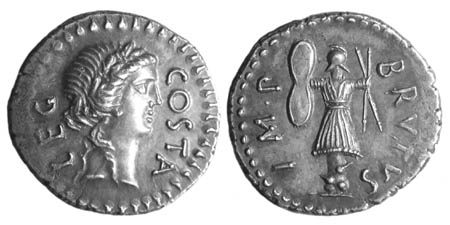| Online: | |
| Visits: | |
| Stories: |

| Story Views | |
| Now: | |
| Last Hour: | |
| Last 24 Hours: | |
| Total: | |
So, what did the old Khumric language sound like?
 |
| NB: same bronze age shield found at Battersea |
this is one of those, “We don't know what Latin sounded like,” issues and it applies to (allegedly) what became Modern Welsh.
I'm talking, of course, about my new sole-obsession, the Khumric Language or Language of Ancient Briton or Language of Etruria via Troy via Syria via Christ Country and the Ten Tribes of Israel via Egypt and all that Bible-y jazz.
'In the noble land of Syrie th[er] was a noble kyng and mighty and a man of grett reno[u]n that men called Dioclitian'. The story continues with the 33 daughters of Diocletian, the eldest named Albyne (Albina), who murdered their husbands and were set adrift at sea before they landed on an island, which they named Albion. [source BRUTS OF ENGLAND] attributed to the first real invasion of Britain by the Syrians in AD 1500, followed by a further invasion in AD 500 by Brutus of Troy.
KHUMRIC: it's an ancient 'root' language that's said to adhere to the Coelbren Alphabet and is said to share distinct grammar markers with ancient Hebrew or Khassite, deriving as it does from Biblical Egypt aka The Fertile Crescent of Eden-myth and so on ad infinitium. And while this supposed Holy Grail of Ancient Britonic Language (the Coelbren Alphabet) accurately translated into pre-modern Welsh, can it really have been spoken with a Welsh accent.
HERE'S HOW WELSH SOUNDS.
The interesting thing here (for my ear) is the way Spanish in South America doesn't have the 'lisp' of Modern European Spanish thanks to an impediment of one of the Kings of Spain who they all loyally aped. Now, research suggests that Moses (of fleeing Egypt fame) had a speech impediment or was facially disfigured in some way so that he might have spoken with this affected Ll of modern Welsh. Anyway…
HERE'S HOW HEBREW SOUNDS.
Personally, though I love this kinky concept of Wales (the Cardiff/Glamorgan region in particular) being the Real Historical Centre of Ancient Briton prior to the Romans paying a scouting visit in BC50, I can't resolve the glaring distinction between the two languages as we currently hear them.
WHAT DID ANCIENT KH-UM-RIC ACTUALLY SOUND LIKE?
Source: http://mikephilbin.blogspot.com/2015/06/so-what-did-old-khumric-language-sound.html



